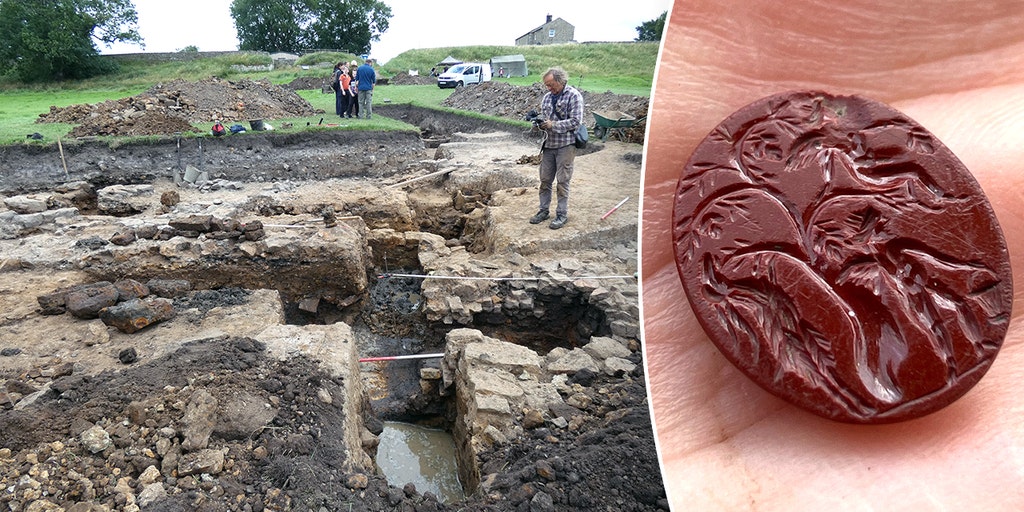Home / Science / 2,000-Year-Old Fruit Unearthed at Roman Fort
2,000-Year-Old Fruit Unearthed at Roman Fort
20 Nov
Summary
- An ancient Roman fort in northern England revealed a 2,000-year-old plum.
- Excavations at Bremenium Fort uncovered numerous artifacts, including Spanish pottery.
- Over 70 volunteers assisted in discovering exceptional Roman military items.

Recent excavations at Bremenium Fort in northern England have uncovered an extraordinary collection of ancient Roman artifacts, including a remarkably preserved 2,000-year-old piece of fruit, believed to be a plum. The site, located northwest of Newcastle upon Tyne, has yielded more discoveries than ever before, thanks to the efforts of over 70 volunteers and archaeology students.
Among the significant finds are imported Roman pottery, some originating from Northern Spain and likely used for transporting olive oil, along with military items such as a spearhead and lead shot. Intricate engraved gemstones, brooches, and intact "dolphin-style" pieces also emerged, offering a detailed glimpse into the material culture of the time.
Archaeology supervisor Bob Jackson described the artifacts as exceptional in both quantity and quality, stating that the range of pottery and metalwork provides new insights into trade, craftsmanship, and daily life at Bremenium. This discovery at Bremenium Fort adds to the ongoing revelations from ancient Roman sites in northern England, with other nearby forts like Vindolanda also yielding significant historical treasures.




